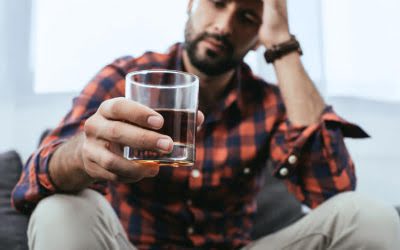Chưa có sản phẩm trong giỏ hàng.
Sober living
Alcohol Detox at Home How to Detox from Alcohol Safely
As mentioned above, tremors, also known as “alcohol shakes”, are a common side effect of alcohol withdrawal. In simple terms, these are fits of involuntary shaking that occur in a person’s body, either centralized to one area or throughout the whole body. Alcohol shakes can happen from both alcohol withdrawal and from excessive alcohol consumption.
Outpatient treatment means you can stay at home during your recovery process, but you must have someone with you at all times who can keep an eye on you and monitor your behavior. Side effects from alcohol withdrawal range from mild to severe, and some are life-threatening. Typical withdrawal side effects include sweating, anxiety, insomnia, headache, nausea, vomiting, and tremors. Side effects like hallucinations, seizures, and delirium tremens (DTs) are also possible. Mild withdrawal symptoms can be managed with hydration, rest and a quiet environment.
Alcohol Shakes: What They Are & How to Get Rid of Them
While alcoholic shakes may be a common condition for those struggling with alcohol addiction or long-term alcohol use, they’re not something to be taken lightly. Alcohol shakes are body tremors experienced when a dedicated drinker stops drinking alcoholic beverages over a period of time. Shakes from alcohol can be very light and only barely noticeable, or it can be pronounced in some cases.

When a person goes through alcohol withdrawal, they may experience something called alcohol tremors, also known as alcohol shakes. Alcohol tremors usually happen when someone with chronic or long-term alcohol abuse quits drinking. Alcohol tremors can be quite annoying to deal with and can make doing simple life tasks more difficult. DTs are severe, potentially deadly, symptoms that may include a racing heart, profuse sweating, confusion, vivid hallucinations and delusions. It’s estimated that about 4-5 percent of people undergoing alcohol withdrawal experience the DTs.
Why am I Shaking with a Hangover?
At The Recovery Village Atlanta Drug and Alcohol Rehab, we offer a whole-person approach using comprehensive care to meet any individual’s situation. We invite you to contact us today to learn how we can help as you embark on your recovery journey. His work has appeared in publications including The Guardian, how to stop alcohol shakes at home Euronews, and VICE UK. Why do hangover shakes happen, and are they a sign of anything serious? Read on to find out and pick up a few tips to help yourself feel better. Deep breathing is an essential component to many of these practices and works to trigger the body’s natural relaxation response.

This stimulation is believed to help with tremors by disrupting the network activity that causes them. The therapy is calibrated for your specific tremor and is part of an essential tremor treatment plan to help you manage symptoms. Addicted individuals often express feelings of anxiety, fear, and stress. These negative emotions can intensify withdrawal symptoms like tremors.
Alcoholic Brain Damage
When you consume alcohol, it acts as a depressant on your central nervous system. Over time and with consistent intake, your brain adapts to the depressant effects by becoming hyperactive, trying to maintain a state of equilibrium. A little bit of shaking after drinking can feel unpleasant, but it usually isn’t anything to worry about it. Try to take it easy for the day and make sure to drink plenty of fluids and eat something. When you drink alcohol, your body responds by decreasing the number or sensitivity of receptors that bind to the neurotransmitter gamma-aminobutyric acid (GABA).
- The two main causes of alcohol shakes are alcohol withdrawal symptoms and alcohol-related brain damage.
- If the alcohol shakes persist for months after abstinence, the addiction specialists will typically recommend that the patient see a neurologist.
- Meanwhile, the brain is producing more and more neurotransmitters, making a person further imbalanced.
- If you’ve been unable to quit on your own, you should consider attending an alcohol rehab center.
- Alcoholic drinks have a depressant effect, and this inhibits the functions of the neurotransmitter which partially numbs the body, leading to that feeling of intoxication.
- There are various ways you can go about treating alcohol tremors depending on the type and severity of your tremors.
Knowing why you drink is essential, says Cyndi Turner, LCSW, LSATP, MAC, a Virginia therapist specializing in addiction treatment and alcohol moderation. To stop drinking alcohol, you first need to understand your relationship with drinking. From there, you may need social support, consistent self-care, and new routines that can help redirect your mind.

